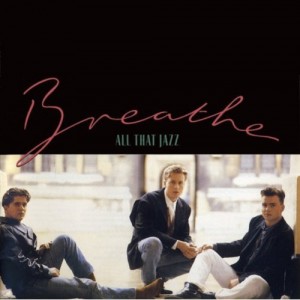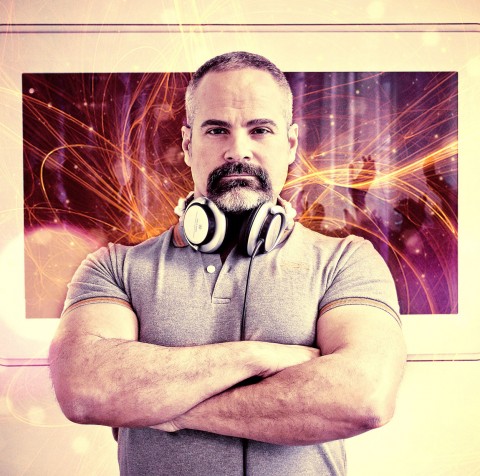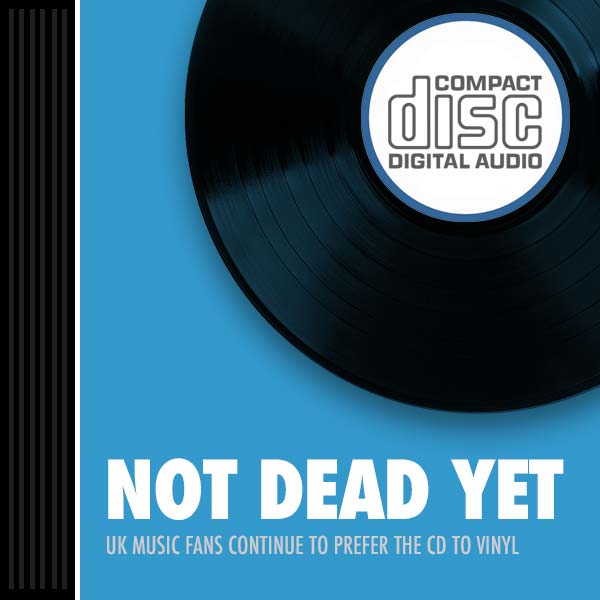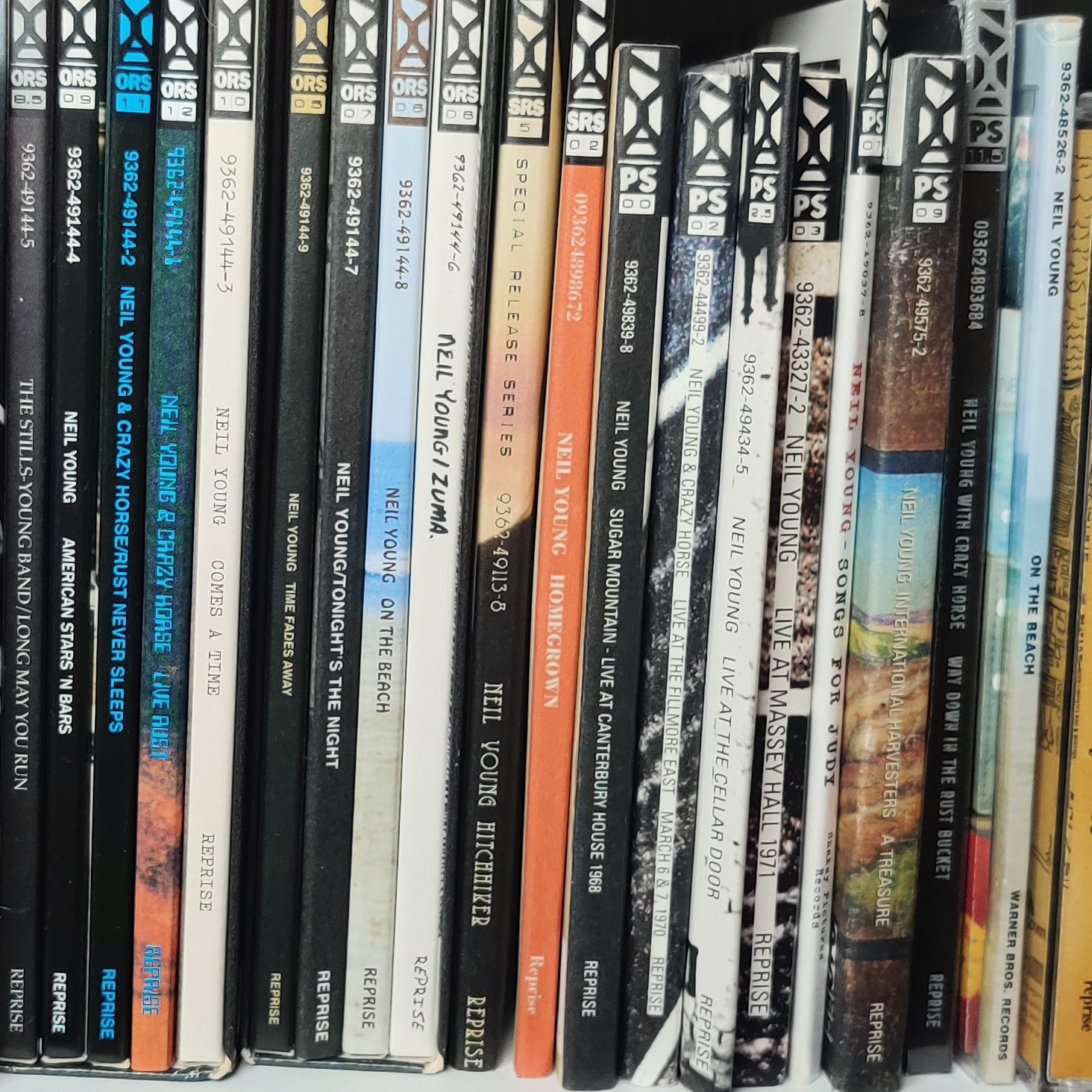INDUSTRY SPOTLIGHT: Interview with Vinny Vero (Part 1)
Vinny Vero is a busy man. As well as producing deluxe releases for Cherry Red Records, he regularly remixes other artists’ work (just finished one for OMD), and is a songwriter, producer and DJ. We caught up with him recently to talk about his career in music and his most recent work on the Breathe, Basia and Julia Fordham reissues.
SuperDeluxeEdition: How did you get involved in the music business?
Vinny Vero: I was at university and wound up getting the opportunity to work in one of the biggest radio stations here in New York. Because I showed tremendous passion for music, they put me right into the music department. I was in charge of contacting – at that point by phone – retail outlets to find out what was selling, what wasn’t selling, to see if the plays on the radio were having any impact. So that was really interesting, and it also gave me exposure to record labels, coming in every week promoting there new singles. So within, I guess, a year and a half, I got the opportunity to then go and work at EMI. I started out as an assistant, and through a series of situations where I was put in front of artists, I started getting a reputation for being really ‘into it’, and they [the artists] really liked that because it was somebody at a label that they felt they could connect with. Within a year, I was a Marketing Manager, which was exactly what I wanted to do, and within six months of that they didn’t have anybody to work their catalogue, so they said, well we’ve got these five or six acts, why don’t you do their catalogue.
SDE: What era are we talking about at this point?
VV: This would have been 1991-96. I wasn’t based in the UK offices, but because I was working with acts such as Go West, Roxette, Sinead O’ Connnor, and the Pet Shop Boys, I was constantly going over to the UK. I was in charge of catalogue and there was a couple of things that happened at the same time, one being “Living In Oblivion” which was which a big eighties series, and no one had ever done it before, at the time. This is ’92 and everyone thought, it’s only 1992, nobody wants this stuff. We wound up selling tons – we did five volumes of those and sold millions of copies.
In the back of my head I wanted ‘Now That’s What I Call Music’ to come out in the US. It would have made complete sense, but none of the labels were interested. So I put out a compilation called “Brilliant” which was a dance compilation. Full length dance mixes. This was right around the time, I think, that Ministry of Sound was doing theirs, and that was becoming a popular thing in the UK. No one was doing it here [in the US]. So I did that and we had such a huge success with it, people at the label said ‘why don’t you start a label” (laughs) I think I was about 25 or 26 at the time – so it was 20 years ago – so what was I going to say!? (laughs). So now I had a label, it was called ‘Brilliant’, a dance label, and we wound up having great success with it, but we had something like five or six number one dance records.
That also spawned the Blondie remix project… and I signed K-Klass in the US, I brought Judy Cheeks over. This was a time when dance music was really tremendous in the UK, but not on radio here. What happened [next] was I thought, I’m going to have a crack at doing a remix – I went to school for production. Production, technology, song writing, marketing… all in the entertainment business. So I did The Tide Is High for the Blondie remix project. It got such a tremendous response that all of a sudden I started getting requests to do productions for other labels… so it was like how many more rabbits can I pull out of a hat (laughs).
SDE: Exactly! How were you managing to do so many different things, there is only one of you, after all..
VV: I don’t know (laughs).
SDE: You were young!
VV: I used to say that’s what it was, but I have so much going on now! There are days when you say, I need two hours to decompress, but of course being 27 or however old I was then, you just keep ploughing through it! What happened after this was another complete accident. I had friends at different publishers and one of the publishers wanted songs, for an act that was signed to Atlantic Records. So they said, you look after the likes of Roxette, Pet Shop Boys, maybe they have some songs – can you help us out? So I sent them a cassette, put it in the post, and if I remember correctly, it was four songs by the Pet Shop Boys on one side and four songs by Roxette on the other side – something like that. So I sent them a cassette that I didn’t need any more, and had re-recorded over the content. The publisher said these are terrific, but we like the last two songs on the second side. I said, okay that’s the Roxette songs, and they said no, the two songs after the Roxette songs… and all of a sudden the penny dropped, and I thought oh no, they are two of my songs! All this stuff was going on in my head, like I was an errant schoolboy. I don’t know why that feeling was there, but I just blurted out that they were two of my songs and that I’d just recorded over a random cassette and that I didn’t realise that my songs were there! But they were like, no we really love those two songs. We have Billie Ray Martin coming in next week, would you like to write some songs for her next album? And I remember standing there and everything went into slow-motion and I can go back to that moment now, I thought this can’t be happening, because this was right around the time that she was having success with Your Loving Arms.
SDE: So what did these songs sound like? Were they fully produced, layered recordings – I mean, it wasn’t you with an acoustic guitar, presumably?
VV: No, it was programmed stuff, with a female singer on it. Actually one of them, I sang, which I didn’t do very often.
SDE: So you obviously did have ambitions to do something in that field, but it was a personal thing – more internal at that point?
VV: It was more of a hobby, you know. I had a pocketful of songs and that was it. The ambition was there, the ambition to produce. None of this would have happened unless… you know that phrase, “success is opportunity meets luck”? I’m sure I’m paraphrasing incorrectly, [quote is actually “Success always comes when preparation meets opportunity”] but you know I said “yes, absolutely” and hanging up the phone I thought where the hell am I going to do this? This was when you had to hire a studio – you didn’t have much at home, like I do now. So anyway, we hired the studio and wound up doing six songs and it just went from there.

SDE: But what’s interesting with you is that you don’t seem to have left much behind, one thing hasn’t replaced another. You seem to layer projects on top of each other, so you’ve got stuff going on in business, creative etc.
VV: And I don’t know how that happens, it’s not like I think “let’s do 17 things” (laughs). Somebody just comes to me and says ‘Do you want to produce a remix for OMD?’…. Sure!
SDE: You just say ‘yes’ to everything!
VV: You know what, I always give advice and tell people not to say yes to everything, but I think I have ended up saying yes to everything! I’m trying to think of a moment when I went “That’s not really for me..” Ususally if I do that, it’s DJ gigs. You know, if they really like Dubstep, don’t ask me to play Dubstep. I play uplifting, anthemic, vocal house records. So that’s when I turn stuff down. So if somebody came to me and said, do you want to produce a track for… [thinks for a while].. Slipknot, I’d say, glad you like what I do, but that’s not for me. But usually people come to me with things that I really like. So why turn them down. That’s sort of how the Cherry Red stuff came about [Vinny is producing reissues from Breathe (already out), Basia and Julia Fordham].
SDE: Let’s talk about the Cherry Red work then. Did they approach you?
VV: It was sort of a little bit from both ends. My publisher, who is based in the UK, does some work with them. And I said I’d love to do some stuff for Edsel and Cherry Red, so if you hear of anything, let me know. Then I was in the UK and my publisher said, you should go talk to so-and-so at Cherry Red, so I went over and met with them and it started a day later.
SDE: Did they have the artists in mind, or where they asking you to come up with ideas?
VV: They left it with me, and asked for a handful of concepts, which I provided, and within a week I had a few of them put together. And within two or three weeks after that Breathe was the first one that came back with clearance. That was a beast of a project. What was a 10 or 11 track album, when you dug deeper, there was lots of mixes, single versions, non-album B-sides, and mixes of the B-sides. Tapes were mislabelled in the vault and the records themselves – which I have in my collection – many of them were mislabelled. So it was a real challenge to dig through all that. But we got a tremendous response on it and I’m really happy about it.

SDE: The normal limitation is two CDs, isn’t it? Occasionally they might do something longer, but in general it’s two discs, so if all the material doesn’t fit, you’re forced to leave things out. Do you have a particular approach to what should go on there and what shouldn’t? Gut feeling, or what you as a fan might like?
VV: It’s a combination of all of that. Typically, it’s a case-by-case basis, so in the case of Breathe, I thought we definitely want the single versions, since a lot of them had not been available on CD. I wanted the B-sides, because I like that representation of any group, something that didn’t make the album. Sometimes they’re really quite strong. Then you have to look at remixes. The first thing that goes by the wayside is dub mixes. There was only one, so I pulled that out, and then thankfully, all of the remixes of the A-sides fitted. The only thing left are the extended versions of the B-sides. In the end we just had to say let’s use the versions that appeared on the seven-inch singles and we’ll set aside those [12-inch] versions of the tracks, of which I think there were three. They’re going to have to be cut. I think there was also one remix, I think it was In All Honesty which was horrific! I don’t even think the song was represented in the remix at all. So I thought, it’s really a dub, so let’s just say it’s a dub, and we put that aside. Personal taste comes into it, sometimes.
SDE: That’s the dilemma. Something might be rare, but if it’s not very good, it’s a difficult judgement call, isn’t it?
VV: Yes. There were some mixes I didn’t like, but that one in particular was truly awful, and the song wasn’t really in there, and I really think the song should be there. Thankfully with something like Basia [a reissue of her Time and Tide album], which is up next, everything fitted.

SDE: Yes, Basia is very comprehensive, so that must have been quite easy, in some ways?
VV: Compared to Breathe, yes. I have all the singles, so really it was just a matter of refreshing my memory about all the singles that were released. All the seven-inch versions were never really available on CD. So I took a listen to each of them and compared them against the album versions. In this particular case, because everything fitted, I put all the Justin Strauss mixes of Promises, including the dubs. So it was pretty easy, but I think it’s just the research of it all, getting all the sleeves scanned. That’s the other thing, which is so involved with these projects – as you know – is that you’re not just going, these are the 32 tracks I want and then that’s it. You’re working with the creative director and designer, overseeing all the artwork, and coordinating the liner notes. In the case of Basia, Danny White and Basia were both involved. In the case of Julia Fordham she’s contributed copious amounts of notes about each individual song on the original albums. So it’s nice to get that insight, because I think it gives the listener or fan a closeness to the album, that maybe they didn’t previously have. So you’re coordinating the liner notes, talking to the artists, sometimes the producer.
In the case of Breathe we couldn’t track anybody down. Unfortunately, Ian [aka ‘Spike’, the drummer] passed away about a decade ago, we know David Glasper (singer) is in South East Asia, but there was no way for us to get in touch with him. We tried to reach out to Marcus [Lillington, guitarist] via Facebook, but didn’t hear back, but we did get Chris Porter (recording engineer), who worked on George Michael’s Faith album, and we got him to contribute notes. So you’re overseeing all these things. You have to QC all the mixes when they come in, listen to it. And that’s the thing most people don’t realise, you need to sit down – 160 minutes or 150 minutes of music to sit through. And I listen to every single track. I wanna make sure there are no dropouts, no weird indexes – I’m really meticulous with that stuff. And then you have to proof read everything, work with the labels to make sure you get the right tapes. Sometimes there’s a bit of back and forth on that, making sure it’s the right tape, with the right mixes.
Vinny Vero was talking to Paul Sinclair. Vinny’s new single Be Free With Your Love is a collaboration with Drop Out Orchestra – watch the video.
Read PART TWO of this interview tomorrow.






By Paul Sinclair
9